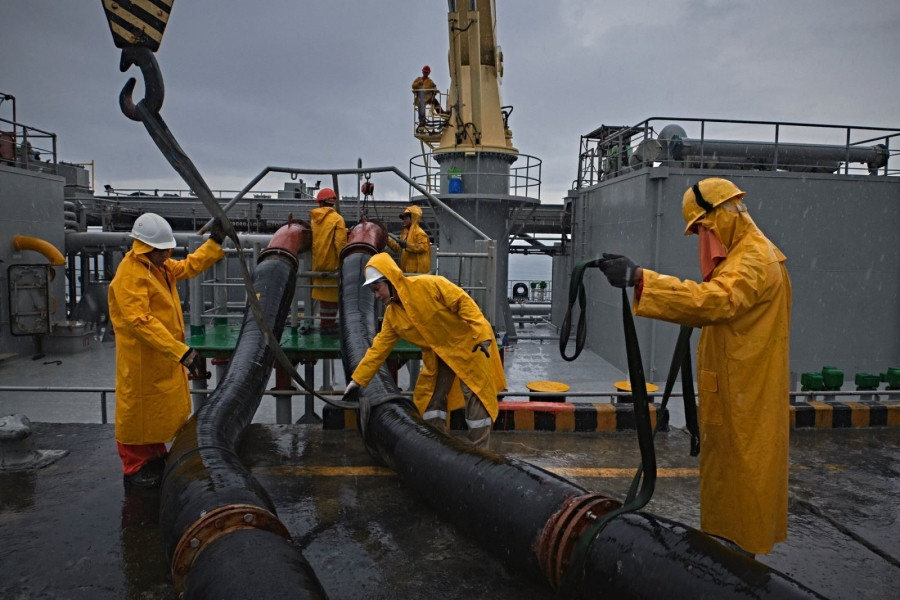The European Commission is considering banning ships registered in European Union countries from employing Filipino crew members, which could put the shipping industry in a difficult position.

Filipino crew members working on board
If passed, the ban could have a major impact on the global shipping industry, with one in four crew members on cargo ships around the world currently being Filipino, according to jalopnik.com.
The European Union is second only to Panama in total trade tonnage. A ban could upend an industry that has struggled for years.
According to Deutsche Welle (Germany), Europe is considering the above ban after an audit by the European Maritime Safety Agency (EMSA). European regulators found that maritime training organizations in the Philippines do not meet the standards of the International Convention on Standards of Training, Certification and Watchkeeping for Seafarers.
If the European Commission decides to act, the European Union will no longer recognize competency certificates issued in the Philippines. Existing certificates will be recognized until they expire, which could be up to five years from now.
The Philippine government has been blamed for this failure. “The government has relied on private training organizations to provide maritime education, but has not adequately subsidized them to upgrade their facilities to international standards,” Edwin Dela Cruz of the Philippine migrant rights group Migrante International told Deutsche Welle. “The government makes a lot of money from seafarers. At the very least, they should provide seafarers with up-to-date training, not temporary measures.”
According to the Philippine Central Bank, seafarers have sent more than $6 billion back to the Philippines while working on ships registered in countries around the world.
Now, hundreds of thousands of sailors could lose their jobs and the global shipping industry could lose a large portion of its workforce to stay afloat.
EMSA has been warning the Philippines about the problem since 2006. Last November, Philippine President Ferdinand Marcos Jr. met with European Union shipping officials in Belgium and assured them that the shortcomings would be addressed and that they would comply with European regulations. Officials affirmed that the Philippine government has taken consistent measures to improve maritime training and education.
Data from the United Nations Conference on Trade and Development shows that the Philippines has the largest number of seafarers in the world. There are an estimated 380,000 Filipino seafarers, or one-quarter of all crews on commercial vessels worldwide.
The COVID-19 pandemic has had a significant impact on Filipino seafarers. During the peak of 2020, around 50,000 Filipino seafarers returned home. According to government data, recruitment of new seafarers will only return to normal in 2021.
“Seafarers, including Filipinos, have had a tough time during the COVID-19 pandemic. Further hardship in employment is not what they need,” said Jan Hoffmann, director of trade logistics at the United Nations Conference on Trade and Development.
According to Tin Tuc newspaper